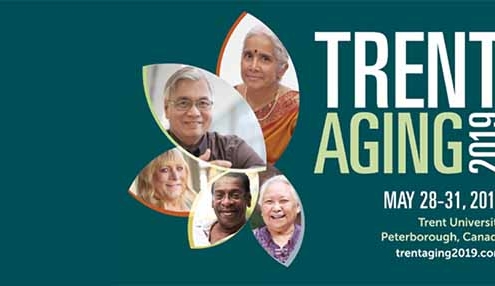This project aims to answer two distinct but interrelated research questions. The first question deals with potential for displacement of traditional dominant media by innovative communication practices within the older audience of new media, requiring analysis of media repertoires and habits. The second relates to the effects, dynamics and level of globalization of this process, calling for a cross-national and longitudinal approach. Involving teams from seven countries this ACT mega-project offers a unique opportunity to create a comparative data set, as well as collect longitudinal data over a five year period, using the same group of participants.
The study draws upon Nimrod’s (2016) study of older audiences conducted in the context of EU COST Action IS0906 “Transforming Audiences, Transforming Societies”. Expanding this project, data will be collected on a biannual basis in seven countries (Austria, Canada, Denmark, Israel, Romania, Spain, and The Netherlands) during a five-year period (overall three waves).
The study is based on an online survey with Internet users aged 60 and up. With varying expected dropout rates, the samples were planned to have a final panel that will comprise about 500 participants per country. The questionnaire includes closed-ended questions exploring media use, places of media use, media preferences, background characteristics, and subjective well-being. With the exception of minor adaptations (for example, mentioning a new trendy Instant Message Software in the question related to this medium), the same measurement will be used in each of the three waves.
This study is expected to significantly contribute to the body of knowledge related to ageing in a digital world and to the factors enabling or constraining older audiences to use new media over time. Its insights can be used for both theory building and practical implications, and direct the information policy of organizations aiming at creating conditions for older audiences to stay connected to crucial information allowing them to stay active members in our society.
2018: 1st report – Older audiences in the digital media environment: A cross-national longitudinal study: Wave 1 (PDF, 1.4MB)
2019: 2nd report – Older audiences in the digital media environment: A cross-national longitudinal study: Wave 2 (PDF, 6MB)
Project updates
Events
Statistics don’t hurt (I) – European team Workshop
Statistics Don’t Hurt (II) Workshop
Project coordinators
Eugène Loos (Utrecht University, Netherlands)
Galit Nimrod (Ben-Gurion University of the Negev, Israel)
Mireia Fernández-Ardèvol (IN3-Open University of Catalonia, Catalonia, Spain)
ACT project principal investigator
Kim Sawchuk (Concordia University, Canada)
Dataset coordinators
Austria: Barbara Ratzenböck (Post-doc Researcher, University of Graz, Austria)
Canada: Martine Lagacé (University of Ottawa, Canada)
Denmark: Cecilie Givskov (University of Copenhagen, Denmark)
Finland: Sakari Taipale (University of Jyväskylä, Finland)
Israel: Galit Nimrod (Ben-Gurion University of the Negev, Israel)
Netherlands: Eugène Loos (Utrecht University, Netherlands)
Romania: Loredana Ivan (National University of Political Studies and Public Administration, Romania)
Spain: Mireia Fernández-Ardèvol (IN3-Open University of Catalonia, Catalonia, Spain)
Project members
Austria: Roberta Maierhofer (University of Graz, Austria)
Verena Köck (PhD student, University of Graz, Austria, Wave 1);
Urša Marinšek (Master’s student, University of Maribor, Slovenia, Wave 1 and 2);
Anja Hardi (Master’s student, University of Zadar, Croatia, Wave 1);
Julia Prochinig (BA student, University of Graz, Austria, wave 3)
Canada: Lise van de Beeck (PhD student, University of Ottawa, Canada)
Catherine Middleton (Ryerson University, Canada)
Marguerite Kephart (Community representative, Respecting Elders: Communities Against Abuse, Canada)
Houssein Charmarkeh (PhD student, University of Ottawa, Canada)
Lisa Carver (PDF student, Queen’s University, Canada)
Kim Sawchuk (Concordia University, Canada)
Constance Lafontaine (PhD student, Concordia University, Canada)
Maude Gauthier (Concordia University, Canada)
Finland: Joonas Karhinen (Project researcher, University of Jyväskylä, Finland)
Israel: Vera Gallistl (PhD student, University of Vienna, Austria)
Netherlands: Boban Braspenning (Master’s student, Utrecht University, Netherlands)
Romania: Ioana Schiau (PDF student, National University of Political Studies and Public Administration, Romania)
Spain: Andrea Rosales Climent (PDF student, IN3-Open University of Catalonia, Catalonia, Spain)
Pedro Jacobetty (PhD student, IN3-Open University of Catalonia, Catalonia, Spain)
Daniel Blanche (PhD Student, IN3-Open University of Catalonia, Catalonia, Spain)
Funding:
ACT-SSHRC
Research Areas:
Telecommunication Technologies
ACT Partners:
Ben-Gurion University of the Negev, Israel
Utrecht University, The Netherlands
University of Graz, Austria
National University of Political Studies and Public Administration, Romania
IN3 Open University of Catalonia, Spain
University of Ottawa, Canada



